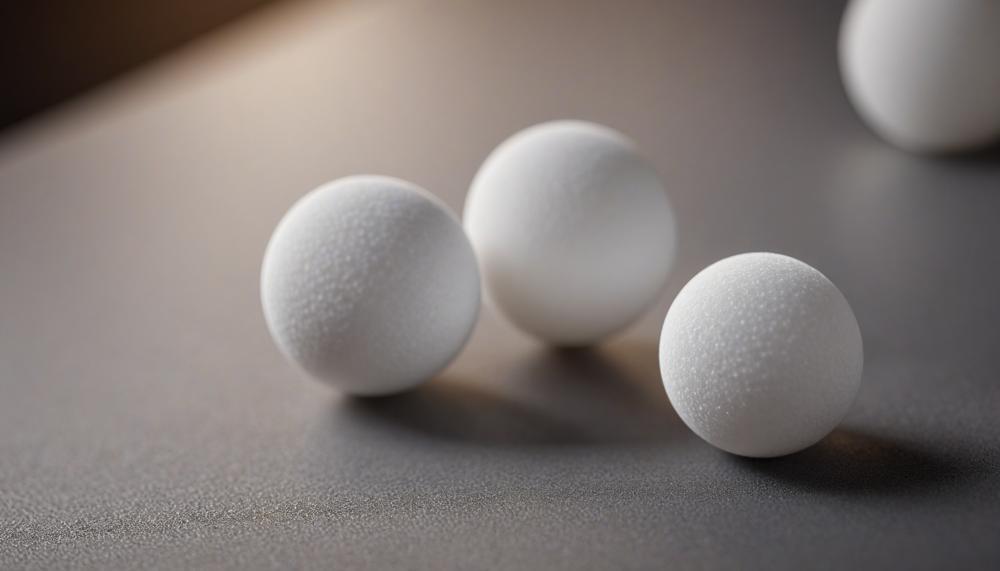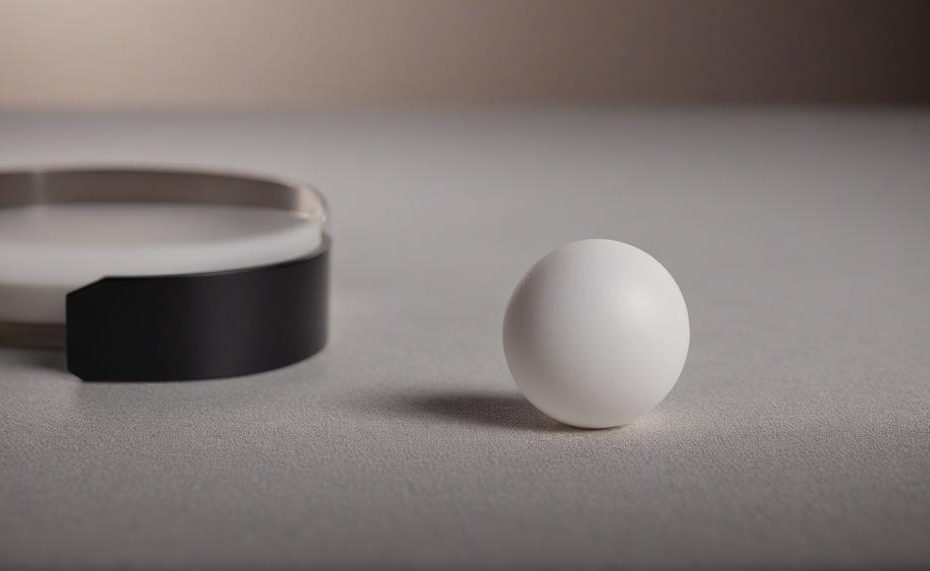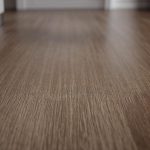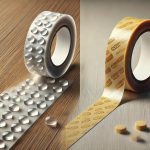Are Glue Dots Easily Removable? Yes, Here’s Why:
If you’ve ever hesitated to use adhesive products for fear of sticky residue or potential damage, Glue Dots might be your new best friend. These versatile, mess-free dots of adhesive are celebrated for their ease of removal, making them a top choice for everything from crafting and DIY projects to professional applications. But what makes them so user-friendly? Here’s a quick breakdown:
- Residue-Free: Glue Dots typically leave no sticky residue behind, preserving the appearance and integrity of surfaces.
- Damage-Free: Designed for easy removal, they don’t damage or stain delicate materials, making them safe for a wide range of surfaces.
- Heat Responsive: Applying a bit of heat can make even the stubborn dots more pliable and easier to remove.
- Versatility: Ideal for temporary bonding in crafts, packaging, and more, Glue Dots can be repositioned as needed without losing their effectiveness.
Understanding these benefits, it’s clear that Glue Dots offer a balance of strong adhesion and clean removal, making them a reliable solution for both temporary and more durable applications. Ready to learn more about their various uses and how to handle them like a pro?
Let’s dive in.
Table of Contents
What are Glue Dots?
Glue Dots are a versatile and convenient alternative to traditional adhesives. They are pressure-sensitive adhesive dots that stick to various surfaces without the mess and fuss of liquid glues.
Here’s a closer look at what makes Glue Dots unique and how they differ from traditional adhesive options:
What Are Glue Dots?
Glue Dots are tiny, pressure-sensitive adhesive dots that provide a clean, instant bond. They are:
- Non-toxic and mess-free, making them safe and easy to use.
- Available in different shapes, sizes, and levels of adhesion for various applications.
- Made for single-use only; once removed, they cannot be repositioned or reused.
- Popular in crafting, retail, marketing, manufacturing, packaging, and DIY projects.
Differences from Traditional Adhesive Options

| Feature | Glue Dots | Traditional Adhesives |
| Application | Simple, no equipment needed | Often requires brushes, applicators |
| Mess | Mess-free | Can be messy |
| Drying Time | Instant bond | Varies; can be lengthy |
| Reusability | Single-use | Varies; some can be repositioned |
| Surface Compatibility | Versatile, sticks to many surfaces | Depends on type; some may not adhere well |
| Residue | No residue left behind | Can leave sticky residue |
| Storage | Store in cool, dry place | Varies; some need special storage conditions |
| Toxicity | Non-toxic | Some can be toxic |
How Do Glue Dots Work?
The key factors that contribute to the removability of glue dots include their unique adhesive formula, physical properties, and versatility.
| Adhesive Formula | Glue dots are crafted with a pressure-sensitive adhesive. This allows them to stick to a variety of surfaces without needing additional moisture or heat. The formulation is designed to provide a balance between strong adhesion and easy removability. | Pressure-sensitive adhesive |
| Physical Properties | The dot shape and low profile of glue dots make them easy to lift and peel off surfaces. Their physical structure ensures that they do not embed deeply into the surface, facilitating easy removal. | |
| Adhesive Strength | Glue dots come in various strengths, from light to heavy-duty. The strength of the adhesive influences how easily the dots can be removed. Lighter adhesives are easier to remove compared to stronger ones. | |
| Surface Type | The type of surface to which glue dots are applied can affect their removability. Smooth, non-porous surfaces like glass or metal generally allow easier removal than rough, porous surfaces like paper or fabric. | |
| Duration of Application | The length of time the glue dot has been applied can impact removability. Longer application times may slightly increase adhesion strength, making removal more challenging. | |
| Temperature Conditions | Temperature plays a role in the adhesive’s behaviour. Warmer temperatures can soften the adhesive, making removal easier, whereas colder temperatures might make the adhesive more brittle. | |
| Substrate Compatibility | Glue dots are designed to be compatible with various substrates. However, certain substrates may interact differently with the adhesive, affecting removability. | |
| Application Technique | Proper application technique ensures optimal adhesion and easy removal. Applying the dots evenly and avoiding excessive pressure can make removal smoother. |
Glue dots are celebrated for their ability to bond temporarily and remove cleanly, making them ideal for applications in crafting, packaging, retail displays, home organization, classroom projects, and even automotive uses.
Applications of Glue Dots
Glue dots serve as an incredibly versatile tool in arts and crafts projects due to their ease of use and mess-free application. Here are some specific ways glue dots can be utilized:
| Project Type | Use of Glue Dots | Benefits |
| Scrapbooking | Adhering photos, embellishments | Secure hold, repositionable |
| Card Making | Attaching cardstock layers, ribbons, buttons | No drying time, strong adhesion |
| Photo Albums | Mounting photographs | Safe for photos, no bleed-through |
| Gift Wrapping | Attaching tags, bows, decorations | Clean, invisible adhesive |
| Decorative Projects | Adhering fabric, metal, wood | Versatile, strong hold |
| Jewelry Making | Attaching gems, beads | No drying time, precise application |
| Kids’ Crafts | School projects, simple crafts | Mess-free, easy to use |
| Party Decorations | Attaching streamers, balloons | Non-damaging, easy removal |
Choosing the Right Glue Dots for Your Project
To determine the best type of glue dot for your project, consider the following factors: weight of the materials, length of use, surface type, and environmental conditions.
For easily removable glue dots, look for low-tack or removable variants that won’t leave residue behind.
| Factor | Details | Recommendations |
| Weight of Materials | Heavier items require stronger adhesion. | Use high-tack or super-strength glue dots for heavier objects. |
| Length of Use | Consider whether the bond needs to be temporary or permanent. | For temporary bonds, choose removable or low-tack glue dots. For permanent bonds, opt for high-tack or super-strength versions. |
| Surface Type | Different surfaces may require different types of glue dots. | For smooth surfaces like glass or metal, standard glue dots work well. For rough or porous surfaces, opt for stronger adhesive dots. |
| Environmental Conditions | Exposure to elements like heat, moisture, or UV light can affect adhesion. | For outdoor use, select glue dots designed for extreme conditions or waterproof varieties. |
Easily Removable Glue Dots:
Removable glue dots are specifically designed to peel off cleanly without damaging surfaces. These low-tack options are ideal for temporary displays, lightweight decorations, or projects where you might need to reposition items.
They offer a secure hold but can be removed without leaving sticky residue.
Conclusion
Glue Dots are the unsung heroes of the adhesive world, offering a mess-free, damage-free solution for various applications. Their ease of removal sets them apart from traditional adhesives, making them a favorite among crafters, DIY enthusiasts, and professionals alike.
One of the standout features of Glue Dots is their ability to leave surfaces residue-free. This quality ensures that the appearance and integrity of surfaces are preserved, whether you’re working with delicate materials or robust surfaces. Additionally, their design prevents damage, making them safe for a wide range of uses.
Heat responsiveness is another advantage; a bit of warmth can make even the most stubborn Glue Dots pliable and easier to peel off. This characteristic, combined with their versatility, means Glue Dots can be repositioned without losing their effectiveness, perfect for temporary bonds in crafts and packaging.
The pressure-sensitive adhesive formula is key to their removability, providing a balance between strong adhesion and clean removal. Their physical properties, such as the dot shape and low profile, also play a role in ensuring they lift easily off surfaces without embedding deeply.






